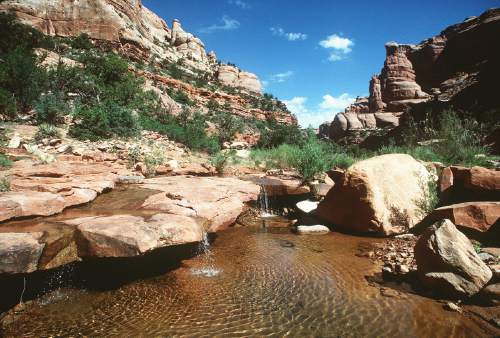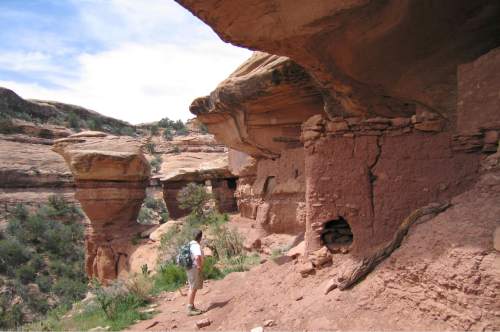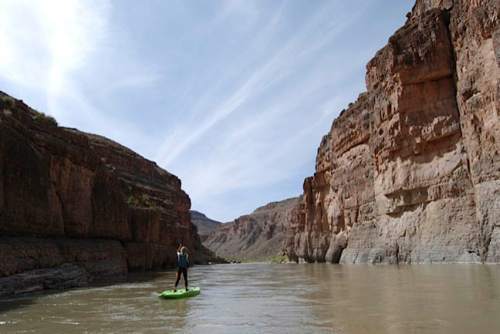This is an archived article that was published on sltrib.com in 2015, and information in the article may be outdated. It is provided only for personal research purposes and may not be reprinted.
The state Board of Education hopes that schools will come out ahead if Congress or the president designate a new national monument in Utah.
That's the thinking behind a resolution, adopted by the board Friday, that insists the state school-trust fund be "held harmless" in such designations.
It would likely require land exchanges, in which the School and Institutional Trust Lands Administration (SITLA) trades land inside new monuments and wilderness areas for Bureau of Land Management acreage elsewhere.
There is precedent for such a swap, the school board and lawmakers say, pointing to the designation of the Grand Staircase-Escalante National Monument two decades ago, when the BLM agreed to trade thousands of acres of SITLA inholdings for consolidated blocks of federal land in the West Desert.
"There's no guarantee that will happen, that lightning will strike twice" said Woods Cross Republican Sen. Todd Weiler.
Weiler spoke in favor of the board's resolution on Friday.
He said he and House Minority Leader Brian King, D-Salt Lake City, have discussed sponsoring a similar resolution during next year's legislative session.
According to the Board of Education resolution, trust lands are "a central component of Utah's education funding," and provided a record $47 million for the current school year.
The funding stream represents the interest and dividend generated by the revenue from state trust lands, which are scattered throughout Utah in a checkerboard pattern within oceans of public lands. The $2 billion endowment grows by about $100 million a year.
The money is distributed at the local level, to be spent by school community councils. It's typically used as supplementary funding for supplies, equipment or additional faculty.
"Landscape-scale monument designations, wilderness designations, or other federal conservation set aside programs have the potential to impact school funding due to tax implications," the resolution states.
The resolution doesn't name any potential monuments, but Bears Ears, a scenic archaeologically rich area sacred to American Indians, is the most likely Antiquities Act designation in the waning months of the Obama administration.
An intertribal coalition has asked the president, who has already designated or expanded 19 monuments in other states, to consider a national monument for 1.9 million acres in San Juan County running from the San Juan River across Cedar Mesa to the Abajo Mountains. It encompasses 157,000 acres of SITLA land, some of which has little potential for mineral development regardless of a monument designation.
Additionally, under the public lands process orchestrated by Rep. Rob Bishop, Congress could designate thousands of acres of new wilderness in eastern Utah while also lifting barriers to development.
Many Utah leaders, particularly in rural counties, adamantly oppose monument and wilderness designations because they preclude most development, increase the impact of federal regulations and stymie economic development in communities hungry for jobs.
Gov. Gary Herbert recently endorsed the idea of a Bears Ears monument, providing it is part of a larger lands deal, but later backtracked to say any new monument must enjoy the support of local leaders. This would be unlikely in the case of the Bears Ears proposal, which is opposed by the San Juan County Commission, including its Navajo member.
Tim Donaldson, director of the School Children's Trust at the state education office, which administers the fund, said the Grand Staircase-Escalante land swap boosted the trust fund's endowment by roughly $300 million in cash payments and land revenue.
But whether that helped or hurt school funding, he said, is "heavily disputed."
In June, the Garfield County Commission declared a state of emergency, blaming the monument for an unsustainable drop in school enrollment and endangering the area's economy.
But Weiler said the exchange was a win for the state, and similar considerations need to be made if a new monument is designated.
"We were not only made whole, we came out very favorable with the Clinton administration," Weiler said. "We're not dealing with the Clinton administration any more."
Twitter: @bjaminwood







